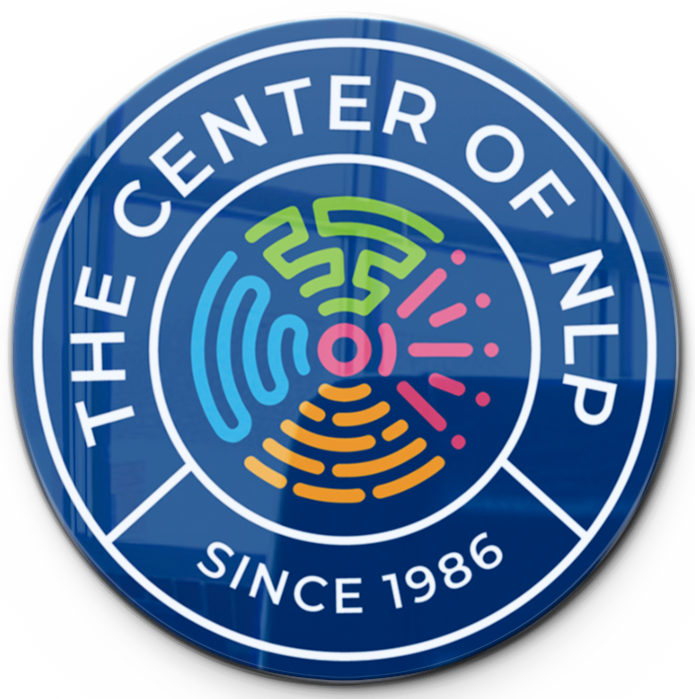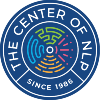CONTACT US info@centerofnlp.com

WHEN TO APPLY EFFECTIVE NLP COACHING TECHNIQUES?
Effective coaching is pivotal in fostering growth, development, and success. Integrating Coaching with NLP techniques can significantly improve your coaching practice by utilizing powerful tools to influence and transform clients' perspectives and behaviors. When and how to apply these techniques is essential for maximizing their impact.
The Importance of Timing in NLP Coaching
Applying NLP techniques at the right time is crucial for effective coaching with NLP techniques. This timing can vary based on the client's needs, the coaching context, and the specific goals being pursued. For example, NLP training can be introduced at the beginning of a coaching relationship to establish a strong foundation. Advanced NLP coaching techniques can be employed later to address more complex issues or to facilitate deeper transformations.
Establishing the Right Context for NLP Training
Creating the appropriate context for NLP Training is fundamental. The initial coaching sessions should focus on building rapport and the client's objectives. Once a clear knowledge of the client's goals and challenges is established, NLP techniques can be gradually introduced.
Assessing Client Readiness for NLP
Assessing client readiness is a critical step before introducing Coaching with NLP techniques. This involves evaluating their openness to new approaches and willingness to engage in the process. Clients ready and willing to embrace change are more likely to benefit from NLP techniques. A thorough assessment helps in tailoring the techniques to meet the client's specific needs, ensuring a more effective coaching experience.
Setting Clear Objectives for NLP Coaching
Setting clear and achievable objectives with the client ensures that the NLP techniques align with their goals. This helps in creating a focused and targeted approach to coaching. Clearly defined objectives provide direction and a framework for measuring progress. They also help in maintaining client motivation and commitment throughout the coaching process.
Introducing Advanced NLP Coaching Techniques

As the coaching relationship progresses, introducing advanced NLP coaching techniques can lead to significant breakthroughs. These techniques can help clients overcome deeper issues and achieve more profound transformations. Advanced techniques are particularly effective in addressing complex challenges and facilitating lasting change.
Addressing Limiting Beliefs
Advanced NLP Coaching techniques can be used to identify and transform limiting beliefs that hinder the client's progress. This involves helping the client recognize these beliefs and replace them with empowering ones. Limiting beliefs often stem from past experiences and can significantly impact a person's ability to achieve their goals. By addressing these beliefs, coaches can help clients unlock their full potential.
Communication skills
Communication skills are a critical aspect of effective coaching. NLP to enhance leadership skills can help clients become more articulate, confident, and persuasive in their interactions. Communication skills, achieved through NLP techniques, are essential for personal and professional success. They enable clients to express themselves clearly, build strong relationships, and influence others effectively.
NLP in Improving Public Speaking
Public speaking is an area where NLP in Improving Public Speaking can have a profound impact. Many individuals experience anxiety and fear when speaking in public. NLP techniques can help in transforming these negative emotions into confidence and clarity, significantly improving public speaking skills.
Techniques for Enhancing Public Speaking Skills
Using NLP in Improving Public Speaking involves specific techniques designed to address the fears and improve the speaker's abilities. Visualization and anchoring are two powerful techniques that can significantly enhance public speaking performance.
Practical Applications of NLP for Public Speaking
Incorporating NLP techniques into public speaking training can lead to remarkable improvements in performance. These techniques help speakers manage anxiety, build confidence, and deliver their messages more effectively. NLP techniques also improve the clarity and impact of the speaker's delivery, making their presentations more engaging and persuasive.
Power of NLP in Coaching
The Power of NLP lies in its ability to create lasting change and transformation. By integrating NLP techniques into coaching, coaches can help clients achieve their desired outcomes more effectively.
Utilizing NLP to Enhance Leadership Skills
Leadership skills can be significantly improved through the application of NLP techniques. Effective leaders possess qualities such as empathy, communication skills, and the ability to inspire and motivate others.
Developing Empathy and Rapport
NLP techniques can help leaders develop empathy and build rapport with their teams, fostering a collaborative and supportive environment. Empathy is a crucial leadership skill that enables leaders to connect with their team members on a deeper level. Building rapport helps in creating a positive and trusting relationship, which is essential for effective teamwork and collaboration.
Improving Influence and Persuasion
Advanced NLP techniques enable leaders to become more persuasive and influential, essential qualities for driving team performance. These techniques help leaders communicate their vision clearly and motivate their team to achieve common goals. By enhancing their influence and persuasion skills, leaders can inspire their team to perform at their best.
Transforming Negative Thoughts with NLP
One of the core benefits of NLP is to Transform Negative Thoughts into positive ones. This transformation is crucial for personal growth and achieving success.
Reframing Negative Thoughts
Reframing involves changing the way one perceives a situation and turning negative thoughts into positive opportunities. This technique helps clients develop a more optimistic and constructive mindset. By reframing negative thoughts, clients can overcome mental barriers and approach challenges with a positive attitude.
Interrupting Negative Patterns
Pattern interruption is a technique used in NLP to Transform Negative Thought patterns and replace them with positive and constructive ones. This technique is particularly effective in addressing habits and behaviors that hinder personal growth. By interrupting negative patterns, clients can develop healthier and more productive ways of thinking and behaving.
When to Introduce NLP Techniques in Coaching
The optimal time to introduce NLP techniques in coaching sessions can significantly improve their effectiveness. Timing is crucial for ensuring that the techniques resonate with the client and lead to meaningful change.
Initial Stages of Coaching
Introducing basic NLP techniques at the initial stages of coaching helps in setting a strong foundation. These techniques can include goal setting, rapport building, and establishing clear communication channels.
Goal Setting with NLP
Setting clear and achievable goals with the client ensures a focused approach to coaching. Goal setting helps clients identify their priorities and create a roadmap for achieving their objectives. By using NLP techniques in goal setting, coaches can help clients set realistic and motivating goals.
Building Rapport with NLP
Establishing a strong rapport with the client is essential for creating a trusting and collaborative coaching relationship. NLP to Transform Negative Thoughts involves creating a connection with the client and fostering mutual trust. NLP techniques can help coaches build rapport more effectively, creating a positive and supportive coaching environment.
Mid to Later Stages of Coaching
Advanced NLP coaching techniques can be introduced in the mid to later stages of coaching. These techniques are particularly effective for addressing deeper issues and facilitating significant transformations.
Addressing Deep-Rooted Issues with NLP
Advanced NLP techniques can help in uncovering and addressing deep-rooted issues that hinder the client's progress. These techniques provide insights into the client's subconscious mind, allowing for a deeper of their thoughts and behaviors. By addressing these issues, coaches can help clients achieve lasting change.
Facilitating Transformations with NLP
Advanced NLP techniques can lead to profound transformations, helping clients achieve their desired outcomes more effectively. These techniques help clients overcome mental and emotional barriers, enabling them to reach their full potential. By facilitating transformations, coaches can create lasting and meaningful change for their clients.
Transform your coaching journey with NLP techniques for remarkable success!
Frequently Asked Questions
Q1: What is NLP in public speaking?
We may certainly all benefit from enhancing our connections and engaging with people more gracefully. Alternatively, influencing, motivating, and generating ideas using words. This and more can be yours with the help of Neuro-Linguistic Programming (NLP).
Q2: Why is NLP so powerful?
Personal Development and Metamorphosis. Facilitating personal growth and transformation is one of the major benefits of NLP. When people learn to control their thoughts, feelings, and actions, they can break free from restricting beliefs, harmful patterns of thinking, and restrictive behaviors.
Q3: How does NLP help communication?
Learning to connect with people, build rapport, and better understand and communicate with them are all goals of neuro-linguistic programming (NLP). By utilizing your language abilities and patterns, you can formulate impactful queries and bring about favorable results with its help.
Q4: What is the specific intervention for a negative emotion in NLP?
Get rid of feelings that hold you back by using NLP coaching. Typically, we refer to these feelings as negative emotions; they include things like dread, wrath, grief, hurt, and guilt. Building your mental chronology of recollections is the first step in creating a timeline.
Check Out For more:
The Role of NLP in Improving Public Speaking and Presentation Skills
Exploring the Power of NLP in Overcoming Limiting Beliefs and Mindset
Using NLP to Transform Negative Thought Patterns into Positive Ones
Mastering Neuro-Linguistic Programming: Techniques and Principles
Copyright 1989 - 2024 | The Center of NLP © | All Rights Reserved

